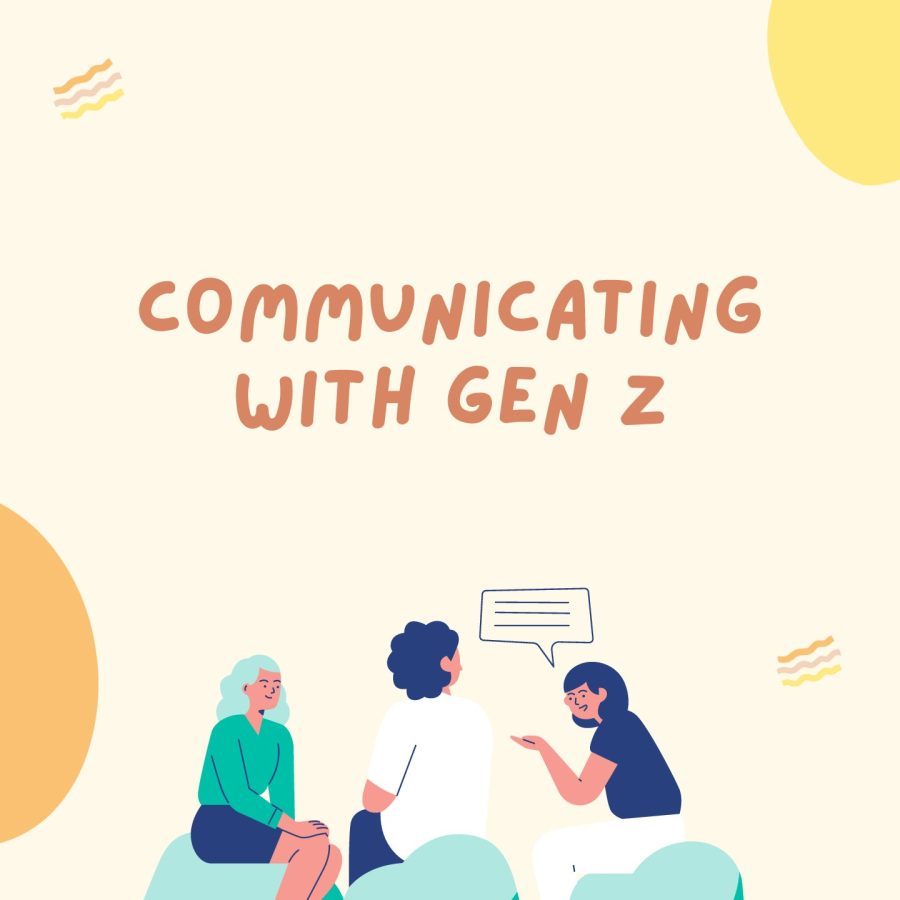Communicating with Gen Z
Communication is an important skill to have in order to be successful in the business world and in private life. Yet, good form of communication is a struggle, especially with Gen Z.
It’s no secret that we spend a lot of our time these days staring at a screen. Statistics show that Gen Z averages around nine hours of screen time per day, with some of that time being spent texting. Nowadays, people would rather text than talk, which has negatively impacted our communication skills.
This is because in-person conversations benefit from visual cues, such as body language, facial expressions and gesticulations. All of these visual cues allow individuals to add a deeper layer of meaning to their spoken words. It’s not possible to fully replicate these important visual cues during spoken conversations on mobile phones. Texting can also lead to misunderstandings and misinterpretations, so face-to-face is the most effective form of communicating.
The more time you spend interacting online, the less time you spend interacting in person, which makes it more difficult to establish strong connections and loses the richness of conversation. Overall, this can affect your skills to communicate face-to-face. However, there are ways you can actively work on improving your communication skills in the digital age, and here are just a few tips.
1. Listen and show interest. People want to know that they’re being heard, and you have to show that you’re genuinely interested in what the person is saying throughout the conversation. Don’t interrupt the person when they’re talking, actively engage in the conversation by asking questions or making comments that are relevant and try to use the right gestures such as nodding your head or smiling. Body language is important, so to appear accessible and interested, you have to have open body language, which means not crossing your arms or not maintaining eye contact. Give the other person your undivided attention; don’t go on your phone or stare off into space while the other person is talking because not only is it showing you’re uninterested, it’s blatantly rude.
2. Think before you speak. It’s okay to take a few moments to pause and prepare what you’re going to say instead of rushing in to fill the silence. Most of us communicate best when we have time to process our own thoughts before we share them. Take into consideration the following questions: what do you want to say? Do you know what you’re talking about? It’s okay if not. Is it a question, or a statement?
3. Use proper grammar. Gen Z likes to use a lot of images, slang, phrases and emojis to communicate, but it sounds very informal, and it’s almost impossible to apply it to in-person conversations. Try to avoid saying ‘um,’ ‘uh,’ ‘like,’ ‘you know.’ Also, try to avoid repeating the sayings, “I was like,” “I said,” “he was like,” “he said,” etc. Never start a sentence with, “so like…” and “okay, so…” Correct grammar is your key to speaking confidently, which brings me to my next tip.
4. Be confident. Confidence allows you to speak concisely and with clarity. Ways to help build your confidence when speaking include giving yourself time to prepare what you’re going to say, using correct grammar, maintaining eye contact (but not too much) and being yourself. Also, when speaking, say it like you mean it; no mousy voice, but don’t be an aggressive psycho, either.
5. Speak up. Communication begins with you. Take responsibility and start up a conversation. Do not wait and expect another person to do so, and don’t hide behind various forms of online communication. Good communication, especially on important topics, requires far more than what we can express in a written message.
Communication helps you connect with others and share ideas. Effective communication clarifies information, reducing wasted time and leaving no room for misunderstanding or misinterpretation. Communication helps build relationships, teamwork and trust and helps to develop your knowledge base, which helps you make better life choices.
Teach each other how to improve their communication skills. Using these tips and more will help you actively improve your communication skills which will benefit you in the long run.

Abbey Huffer is a senior at Independence High School. This is her fourth year in journalism and third year writing for her school's newspaper. She was...










